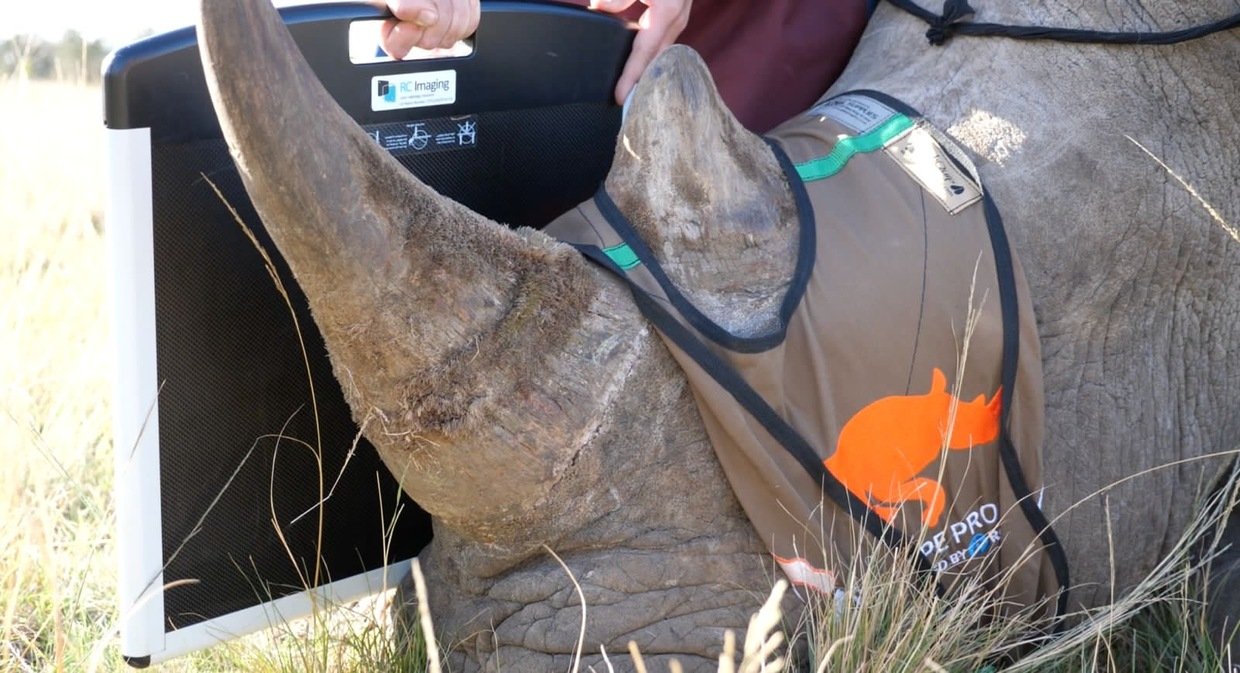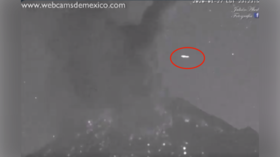Russia’s atomic agency Rosatom to protect African rhinos from poaching by making horns RADIOACTIVE
An innovative international project is working to curb the illegal trade in African rhino horns by using radioactive isotopes to make them easily traceable, and Russia’s atomic agency Rosatom is playing a key role in it.
More than 9,600 rhinoceroses were killed between 2010 and 2019 as poachers keep hunting them for their horns, which cost more than gold and platinum on the black market. Practitioners of Chinese traditional medicine have been named as the chief culprits behind the demand – despite no scientific proof that keratin works against any ailments. As increasingly diminishing numbers of rhinos remain, the market has also been spurred by some Asian buyers seeking to boost their status.
An unsettling forecast suggests that in the next nine years rhinos could be on the brink of extinction in South Africa – the nation that is home to some 90% of their global population.
In order to reverse this trend, the Rhisotope Project was launched in May. Its name is derived from the words ‘rhino’ and ‘isotope,’ and it involves radioactive materials intended to make the horns unattractive and dangerous for poachers and their buyers.
Initiated by the Wits University in South Africa, it has become a major international collaboration with the participation of the likes of Rosatom, the Australian Nuclear Science and Technology Organization (ANSTO), Colorado State University, and the Nuclear Energy Corporation of South Africa (Necsa).
Rather than actually harming those touching the horns, the project aims to make the illegal trade extremely traceable. The rhinos’ horns would be marked with a safe amount of radioactive material so that they would become detectable by some 10,000 radiation scanners installed at airports, train stations and harbors around the globe in recent years.
Also on rt.com Hong Kong reclassifies wildlife trafficking as ‘organized crime’ in bid to crack down on illegal tradeThe hope is that poachers will lose interest in the commodity as its transportation becomes too complicated and dangerous. However, the presence of a radioactive isotope will also serve to devalue the horns in the eyes of the potential buyers.
The first stage of the project has seen stable non-radioactive isotopes being injected into the horns of two South African rhinos. Scientists will monitor these animals until the end of summer to make sure that the foreign materials don’t do any harm to them.

If the procedure is proven safe, supercomputers and 3D modeling will be employed to determine the right radioactive isotope and the precise quantity needed to properly mark the rhinos.
The success of the project would be impossible without Rosatom, as the agency is going to provide the very isotope that will be injected into the rhinos’ horns in the final stage. The Russian atomic agency is proud to be playing a key role in the initiative to save these “amazing animals,” Ryan Collier, who heads Rosatom’s branch in Central and South Africa, has said.
“We are confident that science, especially nuclear science, will play a fundamental role in protecting the whole of our planet, not only the rhinoceroses,” he added.
Also on rt.com Covid-19 crisis puts South African RHINOS & other wild animals in danger as tourism industry goes off a cliffLike this story? Share it with a friend!














